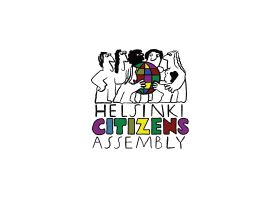For the second time this year, with the participation of Helsinki Citizens’ Assembly-Vanadzor, Civic Solidarity Platform’s Working Group on the Fight against Torture published the torture prohibition index of the OSCE region 8 countries.
According to the data of 2020, Armenia has improved its position as compared to 2019 and now takes the third place among the eight countries.
It should be mentioned that this index has been developed on specific criteria, including state structures’ willingness to provide information and inclination to cooperate with civil society organizations, some number data, the NSS investigators’ workload, as well as torture criminal cases and their results.
Though the Republic of Armenia is even making progress on this scale, it should be recorded that this does not show the full picture of combating torture.
“No radical changes have taken place in the state’s efforts in terms of the right to be free from torture also after the revolution. Moreover, it is clear that the investigative body dealing with torture reports, i.e., the Special Investigation Service, will stop operating. Thus, the independent investigative body dealing with torture reports will no longer operate, which is obvious regress from the obligations undertaken, namely, the obligation that an institutional body has to deal with it”, says Artur Sakunts, HCA Vanadzor Chairman.
HCA Vanadzor continues recording that there is no proper fight against torture, officials who committed torture continue to remain unpunished. Since torture criminalization, i.e., 9 June 2015, no guilty verdict has been made under features of Article 309.1 (Torture).
Both legislative gaps and application of legislation are obstacles to torture prevention and effective investigation into torture cases in the Republic of Armenia.
-
Torture cases continue to remain undisclosed, torture reports, as a rule, do not entail initiation of criminal cases, and in the event that criminal cases are initiated, effective investigation into those cases is not ensured. Criminal cases instituted on torture are discontinued mainly on the ground that the fact of torture is not substantiated, and are suspended based on the lack of the person subject to criminal prosecution.
-
The adequacy and proportionality of punishments imposed by Courts are matters of concern.
-
Improper documentation of torture case by the body conducting the proceedings is also a common problem. As a result of this, torture is qualified as exceeding official authority and thus, the fact of torture or ill-treatment is not acknowledged. It turns out that the person who committed torture receives a punishment more lenient than the one established for the act of torture.
Torture was criminalized in 2015 and if torture was committed before this norm entered into force, such cases are investigated by the Article on “Abuse of Official Authority”, which was in force at that time. Under this Article, statute of limitations is restricted and the maximum punishment is less than the one established by the Article on “Torture”. The competent state bodies, though, do not ignore torture cases -that become known to them – that happened in the past and institute criminal cases.
The results of the Organization’s monitoring of human rights violations by the Police also do not show any good picture in terms of the state of the right to be free from torture.
Combining publications made by the Special Investigation Service and mass media over the past two years, as well as reports and applications submitted to HCA Vanadzor, we can state that human rights violations in police divisions continue, while the body in charge either does not take any measures to prevent those cases and hold the perpetrators liable in relevant cases, or these measures are not properly presented to the public. That is to say, that which happens inside police divisions has become even more inaccessible to the public.
Below we present information collected through inquiries addressed to the competent state bodies in order to assess the state of the right to be free from torture in the Republic of Armenia.

